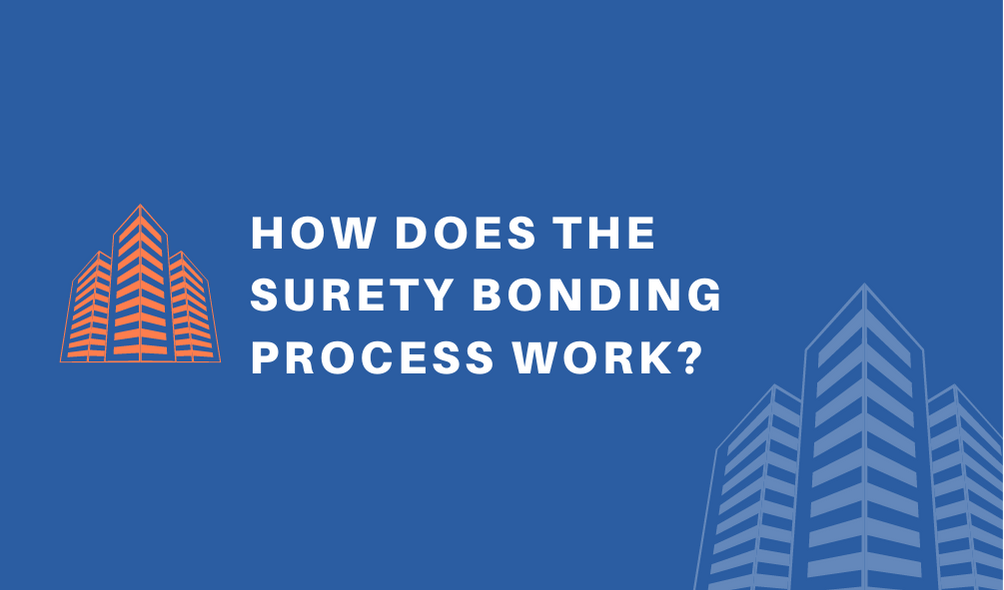How does surety bonding work?
If you’re a contractor or subcontractor, chances are that you’ve had to get a surety bond before. The truth is that if you don’t have one and your customer doesn’t either, then they’ll hold you liable for any damages caused by the work being done on their property!
Surety bonds help protect both parties, so it’s well worth the investment. What do these things cost? Well, there are several different types of bonding that range in price depending on what kind of service needs to be bonded.
When someone applies for a contractor’s license with the state, they must also provide proof of sufficient liability insurance. This ensures that if any damage is done to the property during construction then there will be money available to fix it up. So what does this mean for you?
Let’s say you hire an electrician and he accidentally shorts your wiring system while installing outlets in your kitchen because he didn’t know how electricity works; now his bond will cover the cost of repairing both materials and labor costs incurred by him making mistakes on your job site.
How is a surety bond determined?
A surety bond is a type of indemnity that one party provides to another. It can be used as an agreement between the two parties for performance, or it may serve as security in case the first party fails to perform its obligations. While there are many types of bonds, they all have certain characteristics in common.
They’re all financial agreements that provide protection for one side against potential losses arising from the other party’s failure to fulfill their promises. Bonds are often required by law and usually cover specific situations such as contracts with government agencies, leases on commercial property, court-ordered child support payments, and bail bonds.
For example, if you need your roof repaired after an employee stole materials from your job site, then this would be covered under the contract with the contractor’s company because they have agreed to cover it in their bond. The cost of these bonds varies depending on risk factors such as how much money has been embezzled before and what types of assets are being protected.
What is the function of a surety bond?
A surety bond is a pledge of one party to guarantee the performance of another. It is used in many different industries and for many different purposes, such as guaranteeing that a contractor will complete all work according to specifications and not abandon the project before it’s completed.
A surety bond can be required by law depending on the type of industry or business, where there have been past instances of non-compliance with regulations; if so, it must be obtained before an individual may begin working in said industry.
If the person or company breaks the agreement, the surety will pay what’s owed and recover any losses incurred. This can be very beneficial in various situations, such as when a contractor does not completely work on time or doesn’t finish it at all, for example. A surety bond protects against these types of problems by providing an added layer of protection for people who offer services and goods.
With this extra security, you won’t have to worry about being left high and dry with no funds or materials after a project has been completed poorly because your surety will step in and cover your damages instead!
How do you secure a surety bond?
Many people are not aware of the benefits that come with a surety bond. A surety bond can be used for any type of contract where there is an agreement to perform certain obligations but does not have the ability to complete those obligations or damages that may be incurred by someone else.
A surety bond is what you use to guarantee that your business or project will be completed on time and within budget. If you have ever taken out a loan for anything before, then this should sound familiar because it’s similar to collateral in some ways. The difference here is that if you default on your obligation, the person who stands to lose money is the one who issued the bond rather than a lending institution.
The surety bond is usually issued by one company and guarantees payment on behalf of another company – in this case, the contractor. When applying for a surety bond, you need to have proof of your financial stability as well as proof that you have enough assets to back up your application.
Do you get your money back on a surety bond?
A bond is a type of security that guarantees the performance of one party in an agreement with another. If someone defaults on their bond, they will lose the money they put up as collateral and also be penalized for not honoring their end of the bargain.
A surety bond states that if you violate the terms of your bail or probation, then you will pay to cover any damages caused by your violation. In most cases, this means forfeiting money put up as collateral for the bond in exchange for an enforced sentence. The question on everyone’s mind: Do I get my money back from a surety bond?
Well, it depends on what state you live in and who issued the bondsman’s license in question. If they are licensed with your state, and there was no evidence of fraud found in their investigation when issuing the bondsman’s license, then yes! You will be reimbursed for all monies expended.


